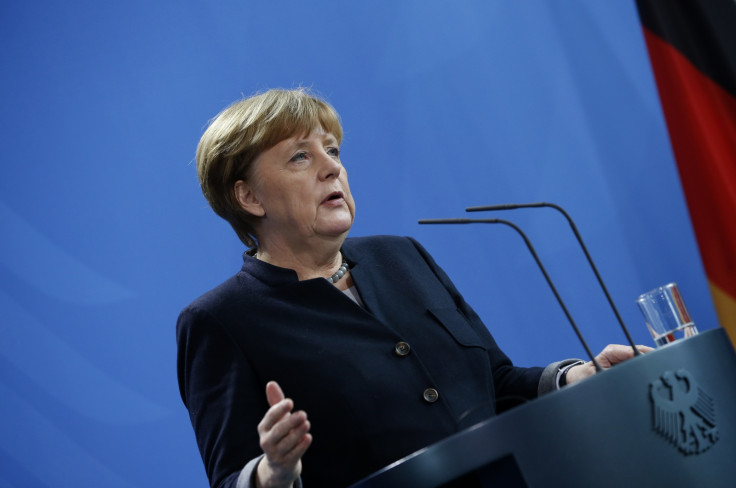Angela Merkel takes lead in polls ahead of key state elections
The poll lead is crucial ahead of voting in the coming weeks.

For the first time since the start of 2017, Angela Merkel's CDU have led the polls for a whole month after a growing threat from their coalition partners.
Over the past 30 days, Merkel has edged an average poll lead of five points after spending much of the first quarter of the year being caught by the centre-left SPD.
In September, Germany will go to the polls to decide between Merkel, who is hoping to win a fourth term as chancellor, or the SPD's Martin Schulz, the former EU Parliament president.
But the ''Schulz effect'' appears to have waned in recent weeks with the party slipping back in the polls ahead of two crucial state votes that will set the scene for the summer electoral campaign.
On the 7 May, the medium-sized state of Schleswig-Holstein will go to the polls. The SPD currently govern the state, despite getting less votes than the CDU in 2012 after forming a coalition to block the centre-right party. Current polls suggest that the SPD may be able to improve on their result from five years ago and maintain power in the state.
But all eyes will be on another area in two weeks time – North Rhine-Westphalia. Germany's largest state by population will be seen as the most important indicator as to which way the national vote may go when the region votes on the 14 May.
Polls have placed the SPD just ahead, but with the CDU closer than expected. The SPD currently govern on a large majority in the state so if the CDU manage to draw level, come close or even win, then the SPD alarm bells will be ringing.
The state is viewed by many as a mini general election due to its diverse economy which contains vast rural areas as well as several large cities including Cologne, Dortmund and Dusseldorf.
The German election is scheduled to be the last major European vote after national elections in the Netherlands, France and Britain.
The right-wing AFD were set to be a major threat to the mainstream parties, but recent infighting has cost them, this at the same time that the number of migrants entering Germany has fallen.
The election on the 24 September will be closely watched with the future of the European union at stake.
© Copyright IBTimes 2025. All rights reserved.





















